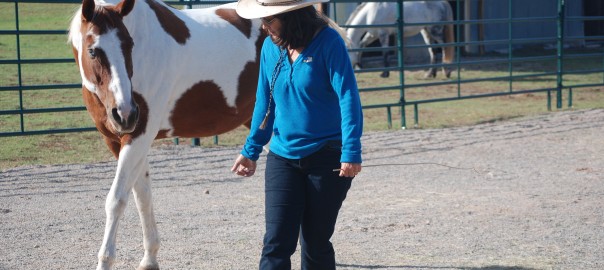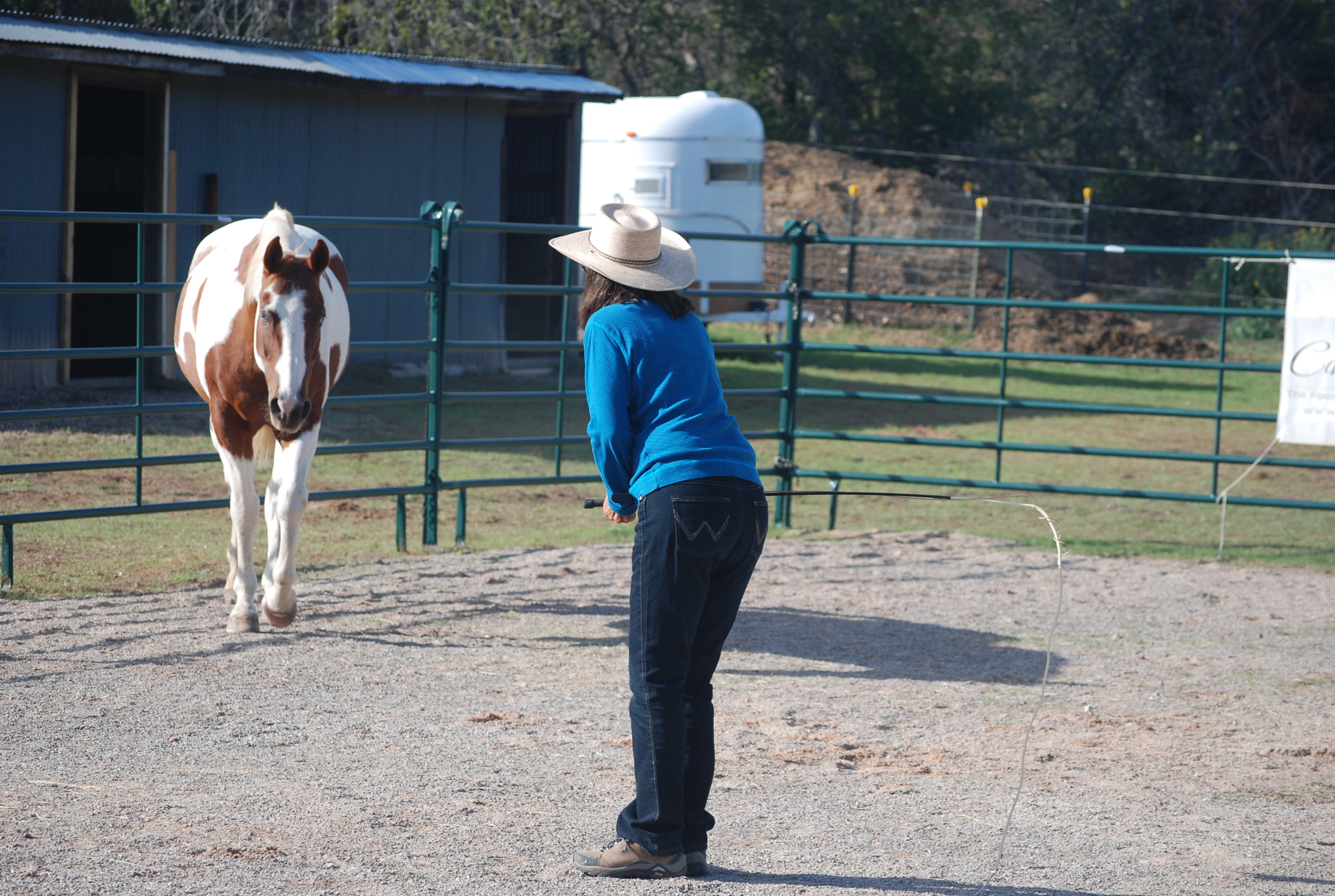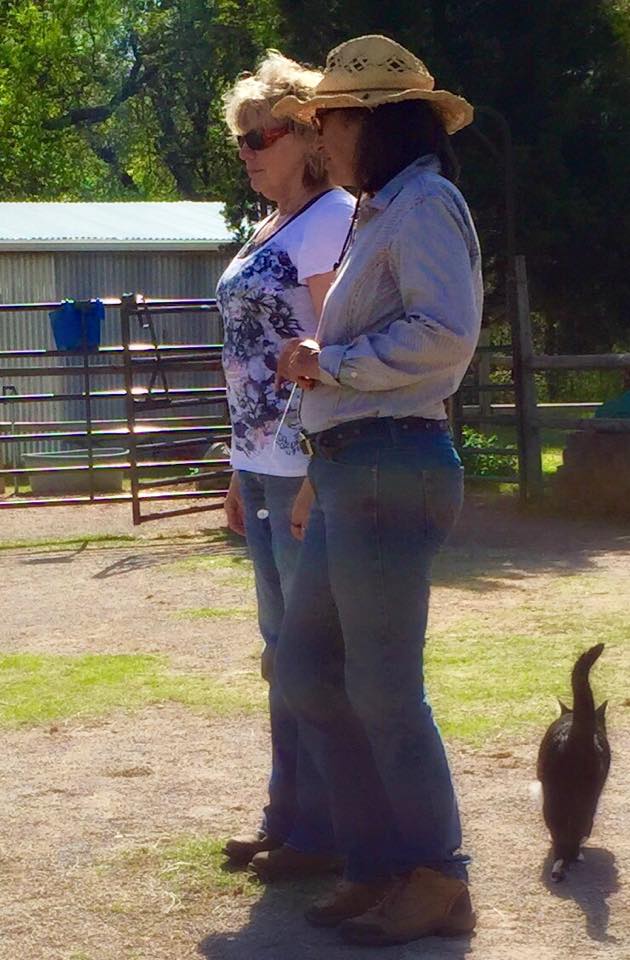One thing that new liberty students may find troubling is their horse moving in and out of connection. In the beginning, when the student first gets a connection on the ground, real movement together, it’s very exciting. It feels wonderful. Then the horse decides to break connection and go visit with someone else or another horse. The student looks over at me, crestfallen, as if to say, what do I do now?
There are several ways to manage the situation. First of all, don’t take it personally. Something else grabbed the horse’s attention and they are no longer with you. Sometimes it’s your energy and sometimes it’s just the horse drifting out of connection. You allow them to leave. You leave them. You can show interest in something else. You can exaggerate their leaving by asking them to leave.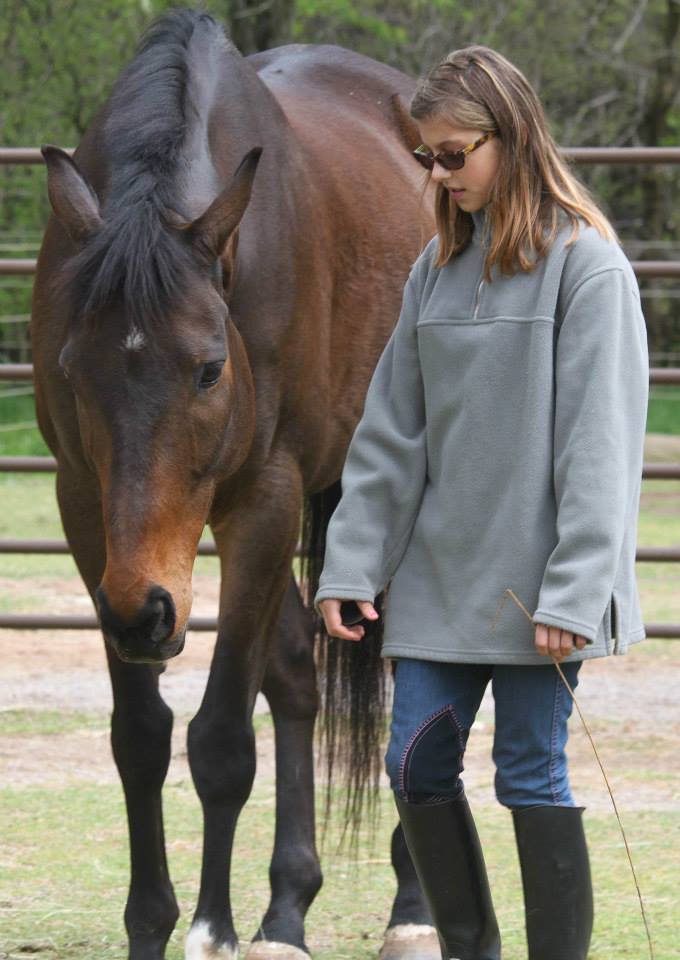
Just as a two-year-old child does not have the attention span to play a game for very long, neither does the horse have a long attention span at the beginning. The only thing they seem to have a long attention span for is grazing. That’s because grazing offers them a great deal of variety in nature, and in domesticity, they seek that too. It also is a physiological necessity and it comforts them through its rhythms.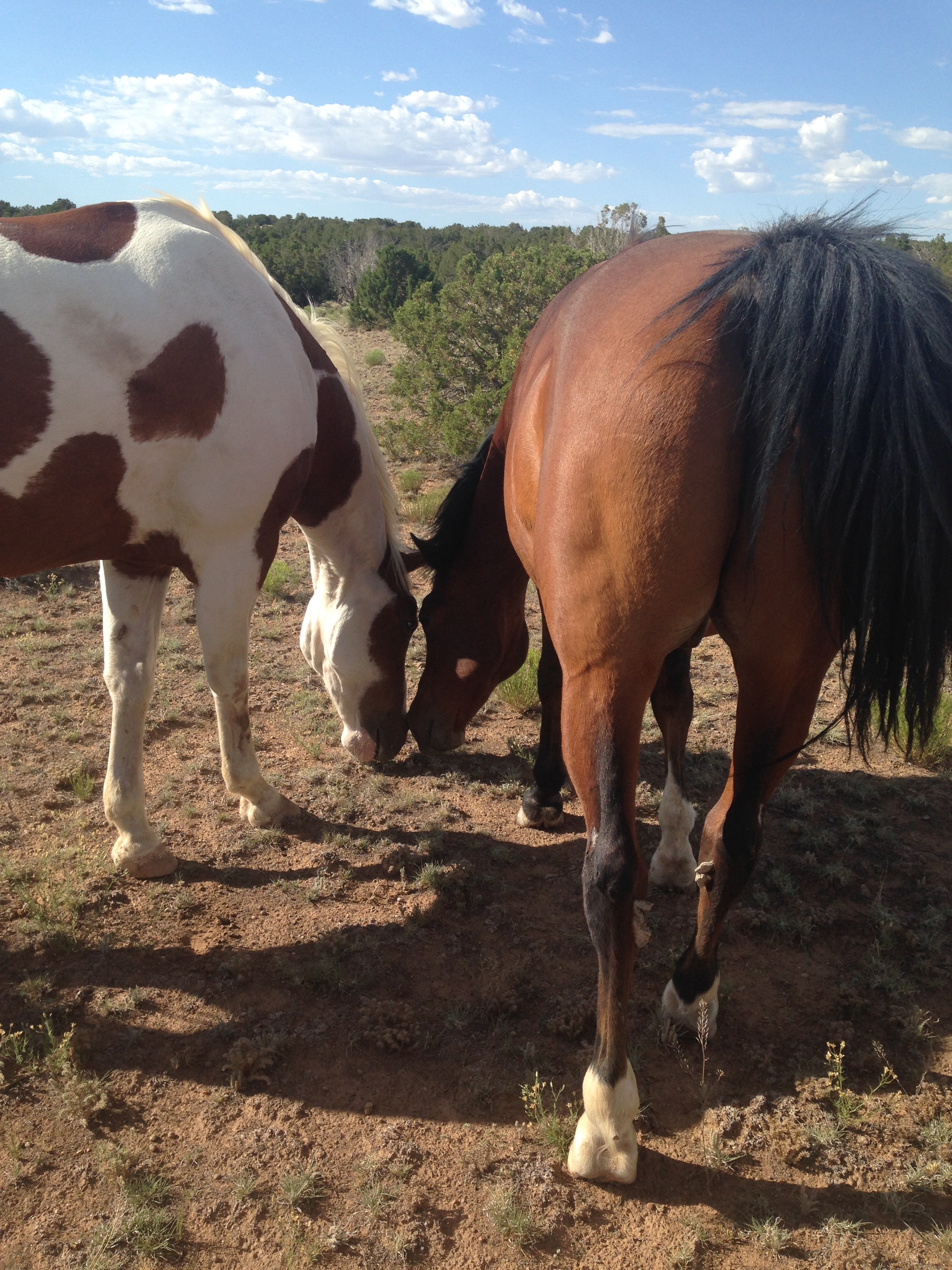
For us, we can work on staying in rhythm with the horse, even when he has broken connection with us. Whether it’s the horse’s walk, their rhythmic munching, visiting with another horse across the fence, we can stay present with that while at the same time, honoring the distance between the horse and ourselves.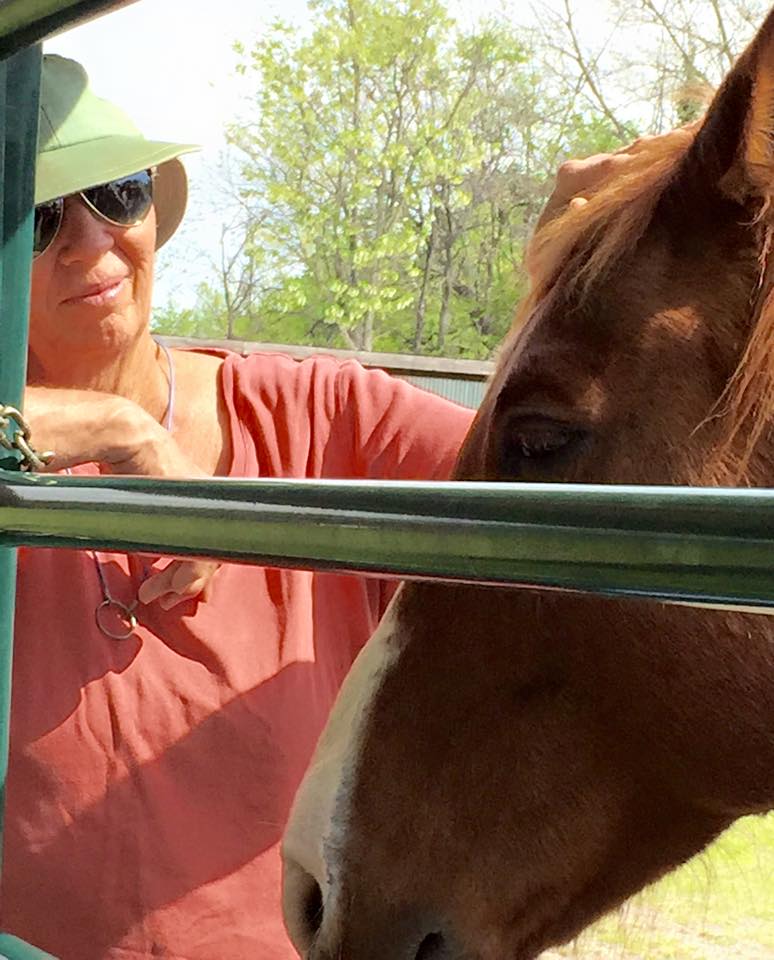
When enough time has elapsed or the horse returns to you, you can resume whatever you were doing. The attention span will increase as time goes on, and even then, there will be days when the horse does not want to do much with you.
If you notice in equine spectaculars, the horses perform according to their particular natures. Some horses really love to just leave the stage. A good performer will work with that to his advantage, drawing the horse back. Perhaps that same horse loves to be invited back and that’s why he leaves. The leaving creates some interest in the sheer distance it creates. The performers learn to play with those variables so that they know the horse will come back to them.
What are we doing with this type of exercise? Building willingness. We have plenty of opportunities to practice the type of horsemanship that begins: “because I said so,” a very necessary phrase in parenting, and sometimes in horse work too. But if we said 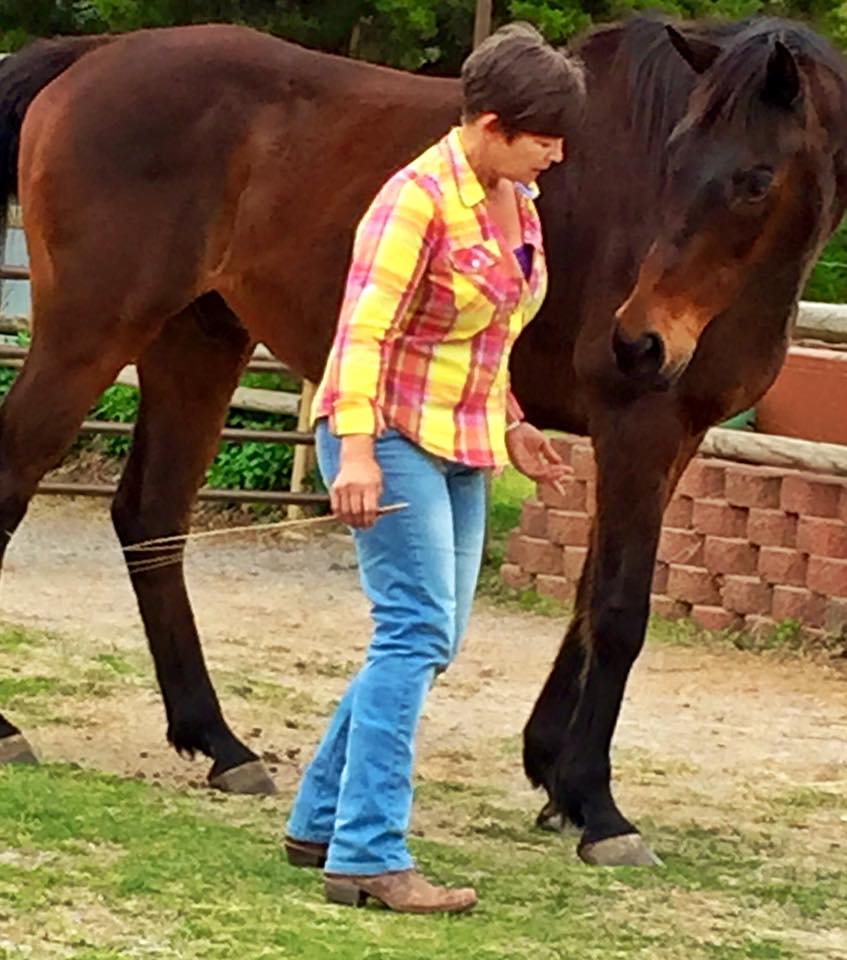 “because I said so” all the time, we would erect roadblocks to creativity and learning. In liberty work, we want to build in willingness by creating a wide open space in which the horse can have a choice, but learn to be respectful of you as well. It builds leadership too. Then our “because I said so” moments won’t be as frequent.
“because I said so” all the time, we would erect roadblocks to creativity and learning. In liberty work, we want to build in willingness by creating a wide open space in which the horse can have a choice, but learn to be respectful of you as well. It builds leadership too. Then our “because I said so” moments won’t be as frequent.
Another way to engage willingness in the horse is to ask a question. While moving in and out of connection, perhaps pose a question, what about this? It’s not a request. It opens the door for when a request is needed later on. There will always be a time when we must request something of our horses. So while we don’t need to, we can ask a question.
Another side benefit is, if he or she loses the connection while you’re riding or in another activity, you will be less likely to take it personally or get frustrated. And you will have the tools to restore the connection quickly.
*****
Keep an eye on the calendar as more events will be added as they are planned.
Services include:
Bodywork: (Ortho-Bionomy for people, Equine Ortho-Bionomy, Equine Positional Release (EPR)): private sessions, tutorials, phone consultations, Horse & Rider sessions
Distance Healing Communication
Gift certificates
Liberty Coaching:
Clinics, mini-clinics, workshops,
Private and semi-private sessions, tutorials
Consultations: by appointment: 505.501.2478 or emailing susansmith@orthohorse.info Contact me for details.
Let me know if you want to do a clinic in your area. Prices will vary according to location & travel costs.
June 13 – Summer Liberty Workshop – 1-Day workshop held in Santa Fe, NM at Arrowhead Ranch. Contact susansmith@orthohorse.info for information.
September 26-27 – Fall Liberty Weekend in Oklahoma — Susan Smith and Ruella Yates, co-instructors. Contact either of us: susansmith@orthohorse.info or ruella@libertyfoundations for further details. Cost: $325.
December 7-11 Sahaja 2015 5-Day Clinic on the island of St. Vincent in the Caribbean – Susan Smith & Stina Herberg. See details:
Independent Liberty Trainers Network
Susan & Stina Team Up to Make the Sahaja Clinic an Unforgettable Experience
Susan is a member of the Independent Liberty Trainers Network. libertytrainersnetwork.com/
Associate Instructor, Advanced Practitioner – Ortho-Bionomy & Equine Ortho-Bionomy
Practitioner, Equine Positional Release
Liberty Foundations Coach



